|
| NEWS |
 |
| Ukrainian edition of SIPRI Yearbook 2023 launched |
|
SIPRI’s translation partner, the Razumkov Centre (Ukrainian Centre for Economic and Political Studies), launched the Ukrainian translation of SIPRI Yearbook 2023 on 31 July. SIPRI Yearbook 2023 is the 54th edition of the SIPRI Yearbook and the 24th edition of the Yearbook in Ukrainian. The book is available for free in PDF format on both SIPRI’s and the Razumkov Centre’s websites.
|
|
|
Read more | Download the Ukrainian translation | Watch a video presentation of the Ukrainian translation
|
|
|
 |
| SIPRI and UNODA events in Lisbon empower future AI practitioners |
|
At the start of June, SIPRI co-organized two events in Lisbon, Portugal, with the United Nations Office for Disarmament Affairs (UNODA) on responsible artificial intelligence (AI) for peace and security. The first event was a roundtable discussion to explore strategies for integrating AI ethics and responsible innovation principles into educational frameworks. The second event was a capacity-building workshop for young AI practitioners from around the world. Interactive sessions over two days equipped participants with the knowledge and skills necessary to address the risks that civilian AI research and innovation may pose to international peace and security.
|
|
|
Read more
|
|
|
 |
| SIPRI co-hosts side event on cyber risk reduction |
|
On 11 July SIPRI and the German Federal Foreign Office hosted an Open-Ended Working Group side event at the German Mission in New York. The event, which launched a new SIPRI report, ‘Cyber Risk Reduction in China, Russia, the United States and the European Union’, featured a discussion among Chinese, European, Russian and US experts on their respective definitions and regulatory measures targeting cyber risk reduction.
|
|
|
Read more | Read the report
|
|
|
 |
| SIPRI welcomes new Deputy Director |
|
SIPRI is pleased to announce the appointment of Charlotta Sparre as its new Deputy Director. Sparre assumes the post on 2 September 2024. Welcoming the appointment, Chair of the SIPRI Governing Board, Stefan Löfven, said: ‘We are delighted to welcome Charlotta Sparre as the new Deputy Director of SIPRI.’ SIPRI congratulates outgoing Deputy Director Joakim Vaverka on his appointment as the new Ambassador to the Democratic Republic of the Congo.
|
|
|
Read more
|
|
|
|
| COMMENTARY |
 |
| Signs of progress on peace-positive climate adaptation |
|
The consequences of climate change disproportionately impact fragile and conflict-affected settings (FCS). By the same token, climate adaptation—measures to increase resilience to climate change—can reduce conflict risks and possibly contribute to lasting peace. However, climate adaptation in FCS is particularly challenging. Various approaches have been suggested to address the challenges, and a review of documents published by five donors suggests that such approaches are starting to take root at the policy level. This blog focuses on how five such approaches were reflected in the documents.
|
|
Read the SIPRI WritePeace blog
|
|
|
|
 |
| External outlets |
|
SIPRI experts were recently featured in these external outlets:
|
|
|
|
| STAFF NEWS |
Current vacancies:
- Senior Researcher, Climate Change and Risk Programme (Closing date: 1 September)
- Director (Closing date: 13 October)
|
|
Read more
|
|
|
|
| PUBLICATIONS |
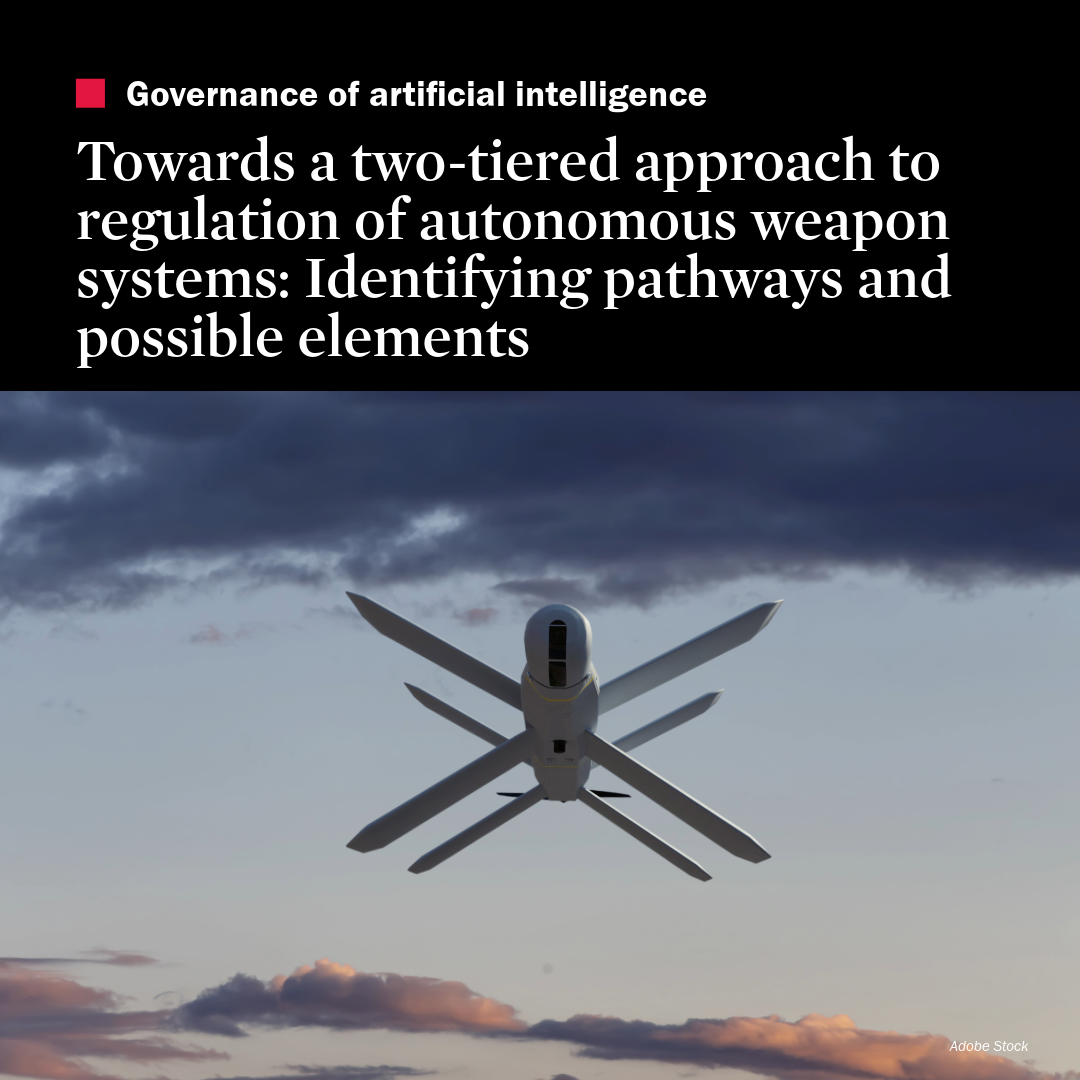 |
| Towards a Two-tiered Approach to Regulation of Autonomous Weapon Systems: Identifying Pathways and Possible Elements |
|
As the global conversation on how to address the challenges posed by autonomous weapon systems (AWS) evolves, there is now growing support among states that one possible way to proceed is through a ‘two-tiered approach’. Such an approach would, on the one hand, prohibit certain types and uses of AWS and, on the other hand, place limits and requirements on the development and use of all other AWS. This report aims to help states as they face the critical task of agreeing on how to enact such an approach. It draws on insights gained during a scenario exercise convened by SIPRI in January 2024 and suggests possible elements and approaches for states to consider to advance the policy discussion.
|
|
Read the SIPRI Report
|
|
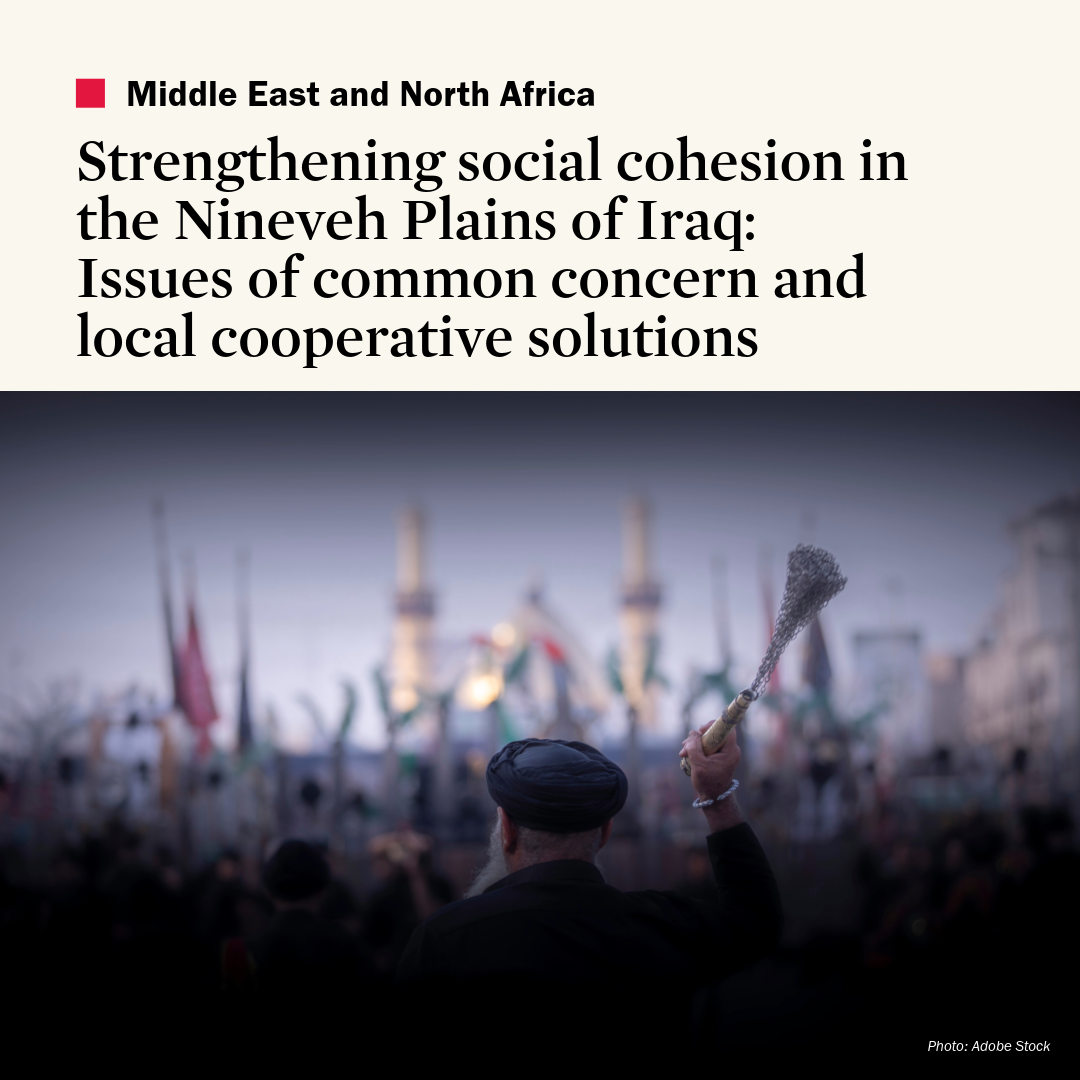 |
| Strengthening Social Cohesion in the Nineveh Plains of Iraq: Issues of Common Concern and Local Cooperative Solutions |
|
When the Islamic State was in control of the Nineveh Plains of Iraq between 2014 and 2017, it sought to destroy the region’s cultural diversity by targeting ethnic and religious communities and their ways of life. This has severely undermined social cohesion in the region. This SIPRI Research Policy Paper highlights some of the issues of common concern to communities in the Nineveh Plains and presents local cooperative solutions proposed by community members during intercommunity dialogue meetings. With adequate support from the relevant national and international actors, they offer opportunities for inclusive peacebuilding driven and owned by local communities and anchored in their everyday life.
|
|
Read the SIPRI Research Policy Paper
|
|
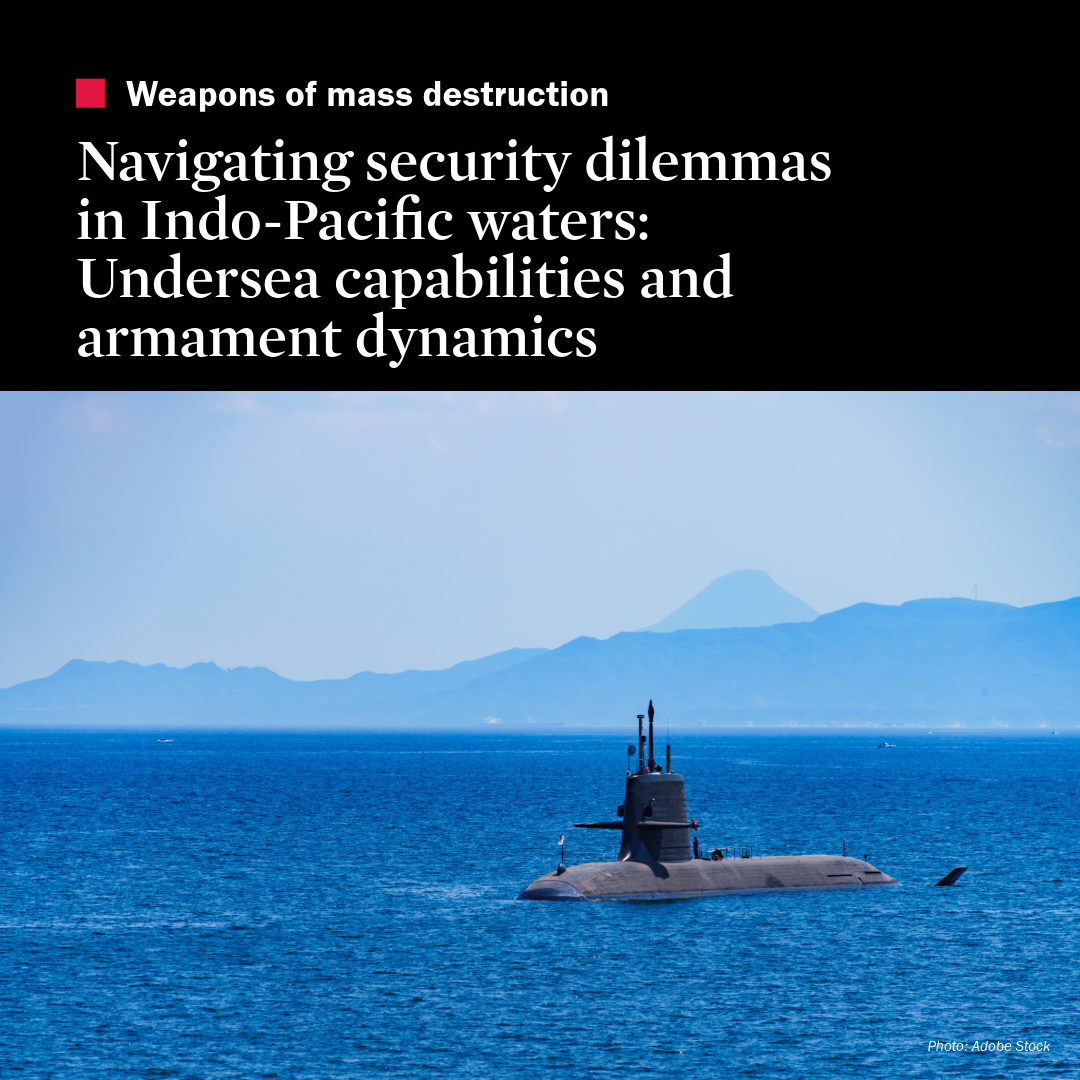 |
| Navigating Security Dilemmas in Indo-Pacific Waters: Undersea Capabilities and Armament Dynamics |
|
This paper examines the drivers and implications of naval build-ups in the Indo-Pacific, considering key actors’ security objectives and threat perceptions, as well as the interplay of regional dynamics and strategic relations between nuclear-armed states. The focus is on undersea armament involving submarines and anti-submarine warfare (ASW) capabilities, which constitute a significant focus of military investments. In addition to seeking to raise awareness of these dynamics, the paper provides recommendations aimed at mitigating the risks related to the increased undersea activities in the Indo-Pacific.
|
|
Read the SIPRI report
|
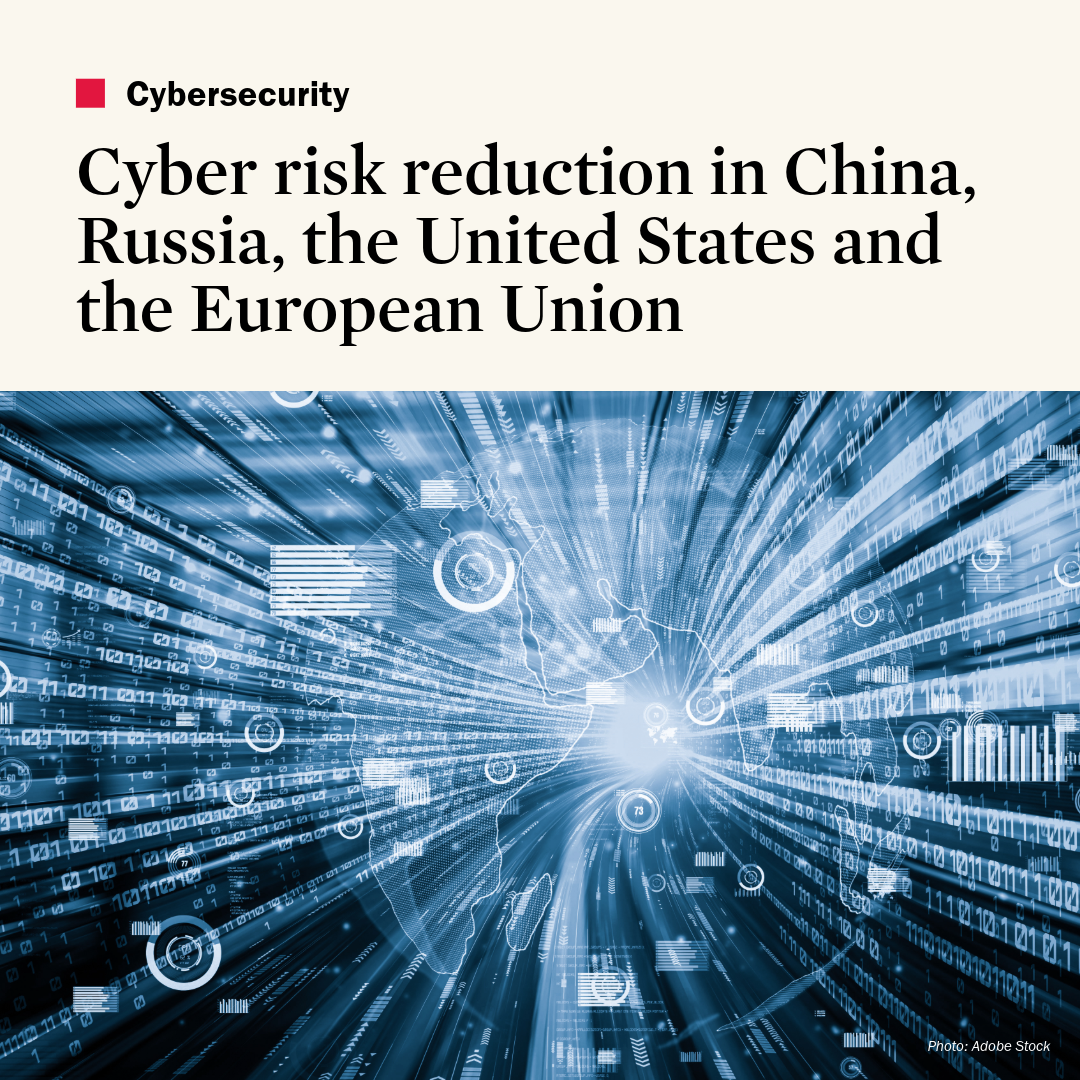 |
| Cyber Risk Reduction in China, Russia, the United States and the European Union |
|
This report provides an overview of cyber risk reduction terminology and regulatory measures within China, Russia, the USA and the European Union (EU). It finds, among other things, that China and Russia excel at clear visuals and steps, yet they also tend to lack linguistic clarity. All four actors are securing their supply chains, yet China and Russia face challenges with burdensome penalties for non-compliance, and the USA and the EU are experiencing obstacles to enforcement at the state and member-state levels. This report is intended to provide a baseline for engagement among the four actors on their respective approaches to cyber risk reduction.
|
|
Read the SIPRI Report
|
|
|
|
|
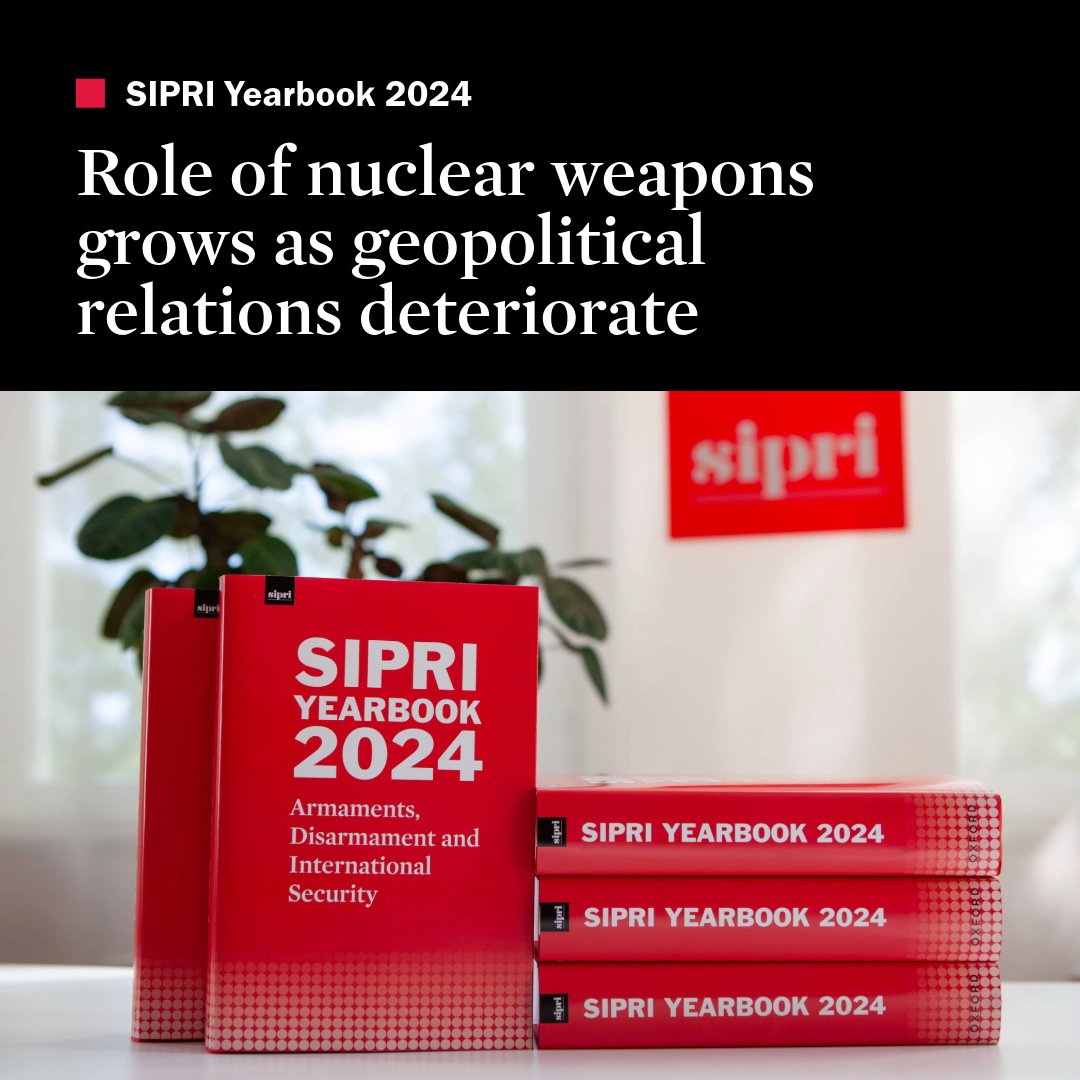 |
| SIPRI Yearbook 2024 |
SIPRI Yearbook 2024 presents a combination of original data in areas such as world military expenditure, international arms transfers, arms production, nuclear forces, armed conflicts and multilateral peace operations, with state-of-the-art analysis of important aspects of arms control, peace and international security. In addition to its detailed coverage of nuclear arms control and non-proliferation issues, the latest edition of the SIPRI Yearbook includes:
- insight on developments in conventional arms control in 2023;
- regional overviews of armed conflicts and conflict management;
- in-depth data and discussion on military expenditure, international arms transfers and arms production; and
- comprehensive coverage of efforts to counter chemical and biological security threats.
|
|
Browse the contents page | Download the summary (PDF) | Download the sample chapter on world nuclear forces (PDF) | Download the introductory chapter (PDF) | Order SIPRI Yearbook 2024
|
|
|
| |
|
|
|
|
|